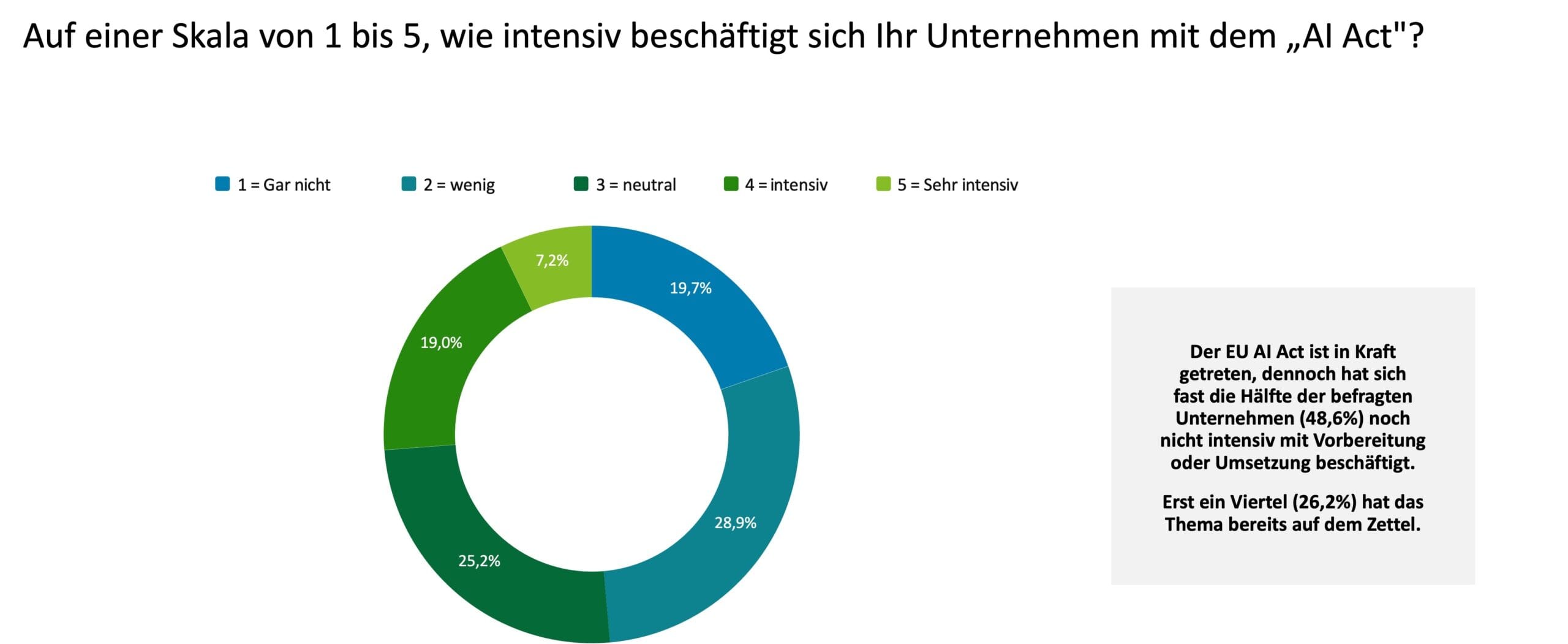

The EU AI Act has officially been in force since the beginning of August and must now be implemented in the EU member states. But how ready are German companies for the new AI regulation? Are they missing an important step on the road to the future of AI? Will the new EU AI Act even hinder AI development in Europe?
A recent survey by Deloitte of 500 managers who deal with the topic in companies shows a clear sense of uncertainty. Many companies are not yet aware of the specific implications and have no clear idea how to deal with the requirements. Skepticism prevails, with only a minority of companies already dealing intensively with the new
Legal situation.
The ratification of the EU AI Act has fundamentally changed the situation for European companies: The regulatory requirements are mandatory for all EU countries and must mostly be implemented within the next two years.
Procrastination can be expensive
"Hesitation in dealing with the EU AI Act is dangerous," says Till Contzen, Partner in the Tax and Legal department at Deloitte. "Depending on the extent of AI use in a company, implementing the requirements will entail considerable effort - especially as many organizations don't even know exactly how much AI they use." There is a threat of a situation comparable to the implementation of the GDPR, when companies were faced with a huge task in 2018 because they had barely used the two-year transition period.







